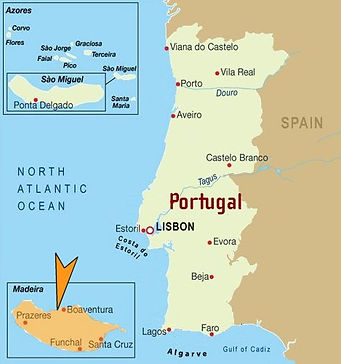Madeira and the IBC (International Business Centre)

MADEIRA
Madeira is the biggest and main Island of the Portuguese archipelago of the same name located in the middle of the Atlantic Ocean, around 1000 km off Lisbon to the southwest.
In 1976 it became an Autonomous Region of Portugal, with its own local Parliament and Regional Government. This archipelago was discovered in 1418 and for the first time inhabited in 1425. Since the arrival of the first Portuguese navigators leaded by João Gonçalves, because of its geographic location, Madeira rapidly became very important as a stepping stone into Africa, and the Americas in the cross roads of the Atlantic, firstly used as a port of call for the Portuguese navigators in their way to the new added territories of the Crown off Europe, and later by all merchant ships in the maritime trading routes.
Madeira nowadays is a modern developed island with state-of-the-art infrastructures with a highly skilled population of around 250.000 people, most of which concentrated in the capital city of Funchal and its neighbouring towns of Câmara de Lobos and Caniço.
The economy of Madeira is essentially sustained by the tourism industry and the international business centre, both contributing for its diversification and its remarkable cosmopolitan atmosphere; it also explains why most people speak English in addition to the native language (Portuguese).
Because of the distance from the mainland, Madeira is considered by the European Union an outermost region.
The easiest way to visit this well-known pearl of the Atlantic is by air, in most of the cases via Lisbon, which is 1 hour and 30 minutes away, but other connections exist such as via Oporto (+/- 2 hours) or London (+/- 3 hours and 40 minutes). Local time zone is "GMT".
Main Advantages of living or visiting MADEIRA
-
Safe and with a low crime rate
-
Low cost of living when compared to other locations, with good quality of life
-
Highly evolved IT technology infrastructure
-
Very good road infrastructures
-
Good network of hotels and available housing at reasonable prices
-
Mild climate throughout the year
MIBC – MADEIRA'S International Business Centre
The IBC of Madeira also known as Madeira’s Free Zone, is one of the two main instruments responsible for the economic development of the archipelago. This regime was formally created in 1980 and essentially is an efficient development programme to attract foreign investment and to contribute for the modernization, diversification and internationalization of Madeira’s economy, where licensed companies may benefit from an attractive special tax regime. A programme pre-approved by the European Union to one of its outermost regions.
A number of specific requirements has to be met so that applicants may benefit from the existing tax incentives granted, and in return the licensed entity will have to pay to the local authorities each year an "annual operating fee". The two most common operating legal structures used are the "Private Limited Liability Company" and the "Company Limited by Shares". The licensed company has to start operating within the first 6 months after the licence has been granted and has to create at least 1 job locally, assure organized accounting and all other legal obligations any other Portuguese company has to comply with, besides having to fulfil another specific requirement in force to keep the licence to operate within the IBC: whenever the licensed company has recruited less than 6 employees, of which at least 1 locally, it will have to prove having made, within the term of 2 years of activity, a number of investments in tangible or intangible assets worldwide amounting to a minimum of Euros 75.000.
In the case of an Industrial licence, the activity that has to be set up within the fenced off area of the Industrial Free Trade Zone has to begin at latest before 1 year has been elapsed as from the moment the licence was granted.
Once part of Madeira’s IBC regime, the company is entitled to profit from the lowest corporate income tax practised in Europe, i.e. 5%. Madeira forming an integral part of the Portuguese jurisdiction, thus of the European Union, provides to its individual and corporate entities full access to all the international conventions and treaties signed and ratified by the Country, namely to the wide network of Double Tax Treaties that Portugal has enforced with other contracting countries (78).
In the beginning of 2014, the Portuguese Government underwent a rather substantial corporate tax reform, aiming at leading Portugal to a much higher position amongst the most competitive countries in the world playing field for the attraction of foreign business and international investment. The so-called “participation exemption” in force as from that moment, combined with the IBC tax regime applicable to Madeira companies, provides international entities and their worldwide investment and trade with a range of very attractive comparative advantages, namely when repatriating dividends and capital gains to their home countries.
The recent promulgation of the new (IV) IBC regime of Madeira has been subject to the prior approval of the European Commission, subsequently followed by the enactment of the respective new law by the Portuguese authorities. This way it has been assured that the benefits of the existing licensed companies (those under the previous III regime still up and running) are being extended to new licensees (new companies entering the IV regime as from 2015 on) with licences that may be granted until the end of 2021, which may benefit from the new regime up until 2027.
The greatest achievements with this new regime were the maintenance of the effective tax rate of the companies, i.e., 5% of corporate taxation, the deadline period of benefits up until end of 2027, and the recovery of the benefit of being able to distribute dividends to non-resident individuals granting them withholding tax exemption.
For more detailed information please contact us.
